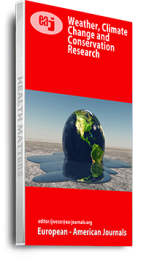As the global population increases, demand for food, most especially protein will increase. Production from fisheries is crucial for food security in the face of current population increase. Despite the reliability on fisheries and aquaculture to supply the animal protein needed by the world population, climate change has significantly reduced production and increase instability in the sector. In order to achieve food security and fisheries development goal, climate smart aquaculture which is an adaptation to climate change and lower emission intensities per output will be necessary. This review therefore discusses climate smart aquaculture as veritable approach to increasing fish production in the face of climate change trend in Nigeria. A number of changes already evident can be attributed to climate change; drastic change in weather condition, reduction in water levels, changes in hydrological regimes of inland water, heavy wind storm, excessive sunshine, increased incidence of flooding and drought. The effects of these changes have resulted in changes in ocean fish productivity, fish disease infestation and reduction of production from inland and aquaculture systems. Climate smart adaptation and mitigation strategies has helped to increase the resilience and adaptive capacity of communities and ecosystems, examples of such strategies include adopted strategies in the Niger-Delta region of Nigeria where about 80% of fish farmers were reported to have adopted strategies such as use of tarpaulin/tank ponds during dry weathers, about 70% have adapted by adjusting time of stocking while 60% stocked fish species that can better adapted to climate change impacts. Other adaptations strategies include erection of cover/shades over ponds, digging boreholes/wells to supply water during dry weathers and well-structured drainage system to guide against flooding. Integrated aquaculture is also an important adaptive measure which has gained huge popularity in Nigeria. The use of low carbon producing energy source in the production and processing of product from aquaculture is a viable means to mitigate against climate change, example include the use of gas or electricity rather than charcoal in fish smoking. Aquaculture waste water treatment before discharge is also a good mitigation practice been recently developed. Climate change will have significant impacts on fisheries and aquaculture in Nigeria. Climate smart aquaculture will respond to these changes by boosting adaptive capacity and resilience both of communities and the ecosystems on which they depend. It is important therefore to ensure adaptation and mitigation in response to climate change so as to safeguard sustainable fish production and food security improvement.
Keywords: Climate Change, Fish production, Food Security, Sustainable Aquaculture

